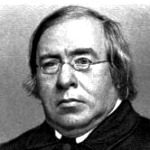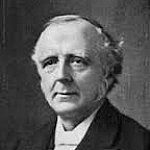Quotes about Goodness
Do not only take occasions of doing good when they are thrust upon you; but study how to do all the good you can, as those "that are zealous of good works." Zeal of good works will make you plot and contrive for them; consult and ask advice for them; it will make you glad when you meet with a hopeful opportunity; it will make you do it largely, and not sparingly, and by the halves; it will make you do it speedily, without unwilling backwardness and delay; it will make you do it constantly to your lives’ end. It will make you labor in it as your trade, and not consent that others do good at your charge. It will make you glad, when good is done, and not to grudge at what it cost you. In a word, it will make your neighbours to be to you as yourselves, and the pleasing of God to be above yourselves, and therefore to be as glad to do good as to receive it.
True goodness is not merely impulsive, but rational and considerate – It will therefore pause, and be at some trouble to inquire what service, and how best may it be rendered… Goodness should be willing to give time, and thought, and patience, and even labor; not mere money and kind words and compassionate looks.
Kindness is a sincere desire for the happiness of others; goodness is the activity calculated to advance that happiness. Kindness is the inner disposition, created by the Holy Spirit, that causes us to be sensitive to the needs of others, whether physical, emotional, or spiritual. Goodness is kindness in action – words and deeds. Because of this close relationship, we often use the two words interchangeably.
The Practice of Godliness, NavPress, 1996, p. 189. Used by permission of NavPress – www.navpress.com, All rights reserved. Get this book!
We need to develop a kind disposition, to be sensitive to others and truly desire their happiness. But sensitivity alone is not enough: the grace of goodness impels us to take action to meet those needs.
The Practice of Godliness, NavPress, 1996, p. 191. Used by permission of NavPress – www.navpress.com, All rights reserved. Get this book!
I would leave this with you: Be always doing or receiving good. Our Lord and Master went up and down in this world doing good; He was still doing good to body and soul; He was motivated by an untired power. Be still doing or receiving good. This will make your lives comfortable, your deaths happy, and your account glorious, in the great day of our Lord. Oh! how useless are many men in their generation!
We should therefore learn that the only good we have is what the Lord has given us gratuitously; that the only good we do is what He does in us; that it is not that we do nothing ourselves, but that we act only when we have been acted upon, in other words under the direction and influence of the Holy Spirit.
Calvin’s New Testament Commentaries, The First Epistle of Paul to the Corinthians, Eerdmans Publishing Co., 1960, p. 317-318, www.eerdmans.com.
Between two evils, choose neither; between two goods, choose both.
The extent to which I love God and reflect that love by doing His will revealed in the Word of God is also the degree to which I “love what is good” [see Rom. 12:9]. Consequently, the real questions I must face are: Do I really love God? How much do I really love God?
The Measure of a Man by Gene Getz, Copyright 1995, p. 230, Gospel Light/Regal Books, Ventura, CA 93003. Used by Permission. Get this book!
What is “good?” “Good” is what God approves. We may ask then, why is what God approves good? We must answer, “Because He approves it.” That is to say, there is no higher standard of goodness than God’s own character and His approval of whatever is consistent with that character.
Systematic Theology, Zondervan, 1994, p. 197. Used by Permission.
Get this book!
Goodness finds its fullest and highest expression in that which is willingly and sacrificially done for others. It is moral and spiritual excellence manifested in active kindness. [It] describes a positive moral quality characterized especially by interest in the welfare of others. [It] refers to active goodness as an energetic principle. It is the generosity which springs from the heart that is kind and will always take care to obtain for others that which is useful or beneficial. [Goodness] is a fruit of the Spirit and a fruit of the Light. [It] is moral goodness found only in believers and only as the result of the working of the Holy Spirit in the lives of those who submit to His divine will and power.
The supreme test of goodness is not in the greater but in the smaller incidents of our character and practice; not what we are when standing in the searchlight of public scrutiny, but when we reach the firelight flicker of our homes; not what we are when some clarion-call rings through the air, summoning us to fight for life and liberty, but our attitude when we are called to sentry-duty in the gray morning, when the watch-fire is burning low. It is impossible to be our best at the supreme moment if character is corroded and eaten into by daily inconsistency, unfaithfulness, and besetting sin.
Goodness breaks the spell the enemy tries to cast and renders him powerless (Dan Allender).
Copied from Bold Love by Dan Allender, 1992. Used by Permission of NavPress – www.navpress.com. All Rights Reserved.
Jesus loved the enthusiast, the man who knew what side he was on and threw himself whole-heartedly into the struggle. He liked energetic action, as in the men who climbed the roof and broke a way through for their paralyzed friend, or in Zacchaeus who forgot his dignity and swarmed up a tree. He loved the generous giver. All four Gospels quote His saying, “He who loves life loses it; he who spends keeps.” It sums up His attitude to life. He praised the man who banged on the door till he got an answer; He wanted men to show that kind of determination in the affairs of religion. He praised the widow who badgered the unjust judge into doing justice. He did not like playing for safety or burying one’s talent. It is the peace-makers rather than the peace-keepers whom He blesses. Goodness is a positive active loyalty (Hugh Martin).
It was the saying of a heathen though no heathenish saying, “That he who would be good, must either have a faithful friend to instruct him, or a watchful enemy to correct him.”
A Puritan Golden Treasury, compiled by I.D.E. Thomas, by permission of Banner of Truth, Carlisle, PA. 2000, p. 115.
Do all the good you can, by all the means you can, in all the ways you can, in all the places you can, at all the times you can, to all the people you can and as long as you can.











